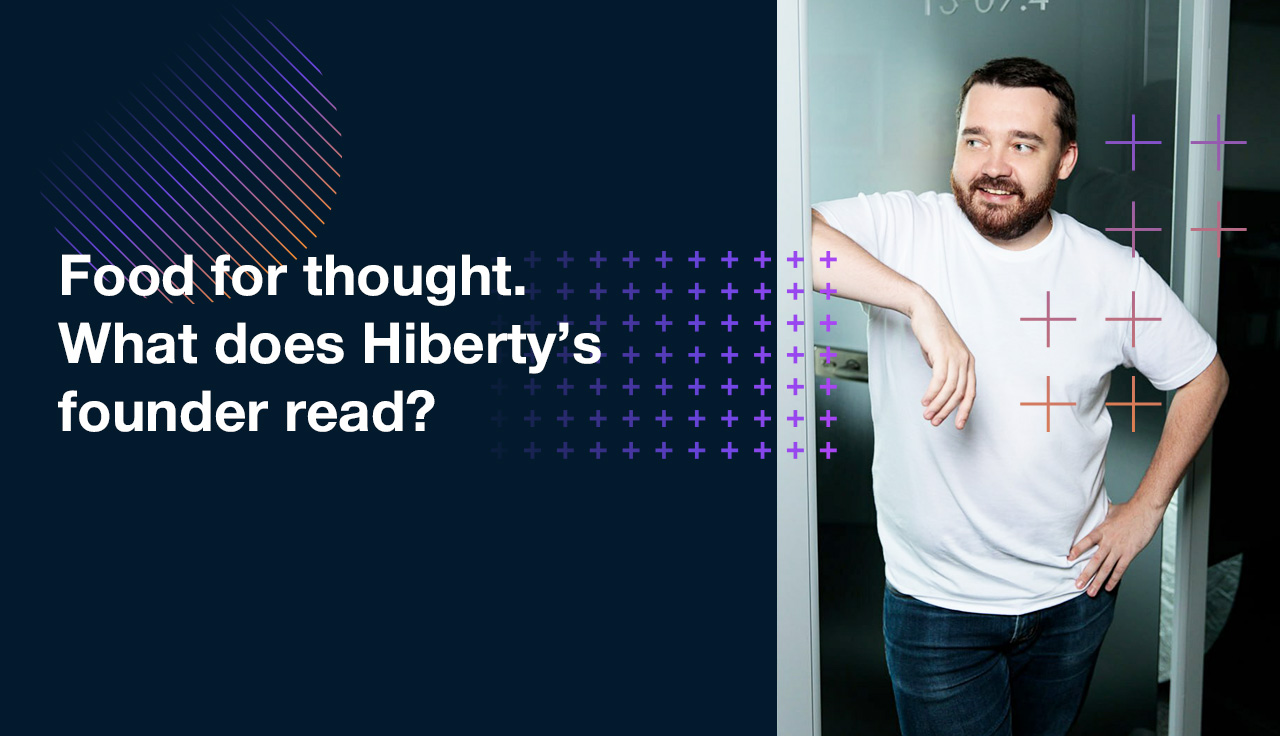
Books that entrepreneurs are advised to read according to Hiberty CEO Andrey Krylov. He is confident of the importance for entrepreneurs to read and digest business literature, and shares some of the most inspiring works.

Bad Blood. Secrets and Lies in a Silicon Valley Startup. John Carreyrou
The biggest lie in the startup world is the story of a person who exaggerated the term “fake it until you make it” as no one else. The book demonstrates how blind faith in oneself causes harm to many people. The book chronicles the life of Elizabeth Holmes, who founded Theranos at the age of 19 and was obsessed with changing the conservative blood analysis industry and becoming the medical equivalent of Steve Jobs. The business began producing compact analyzers that were able to quickly make complex analyses from a drop of blood. However, the ambitious plan was not fated to be, and the company became a flash in the pan.
Steve Jobs. Walter Isaacson
The founder of Apple strived to change this world and bring quality to every invention. “It takes a lot of hard work to make something simple It’s not just minimalism or the absence of clutter. It involves digging through the depths of complexity. To be truly simple, you have to go really deep,” Jobs believed.
The author describes not only about how Steve managed to create an empire and completely turn the technology sphere on its head, but also reveals the more human details. Many events from businessman’s life are exaggerated, as they say. However, in the work you will find something much more valuable, the story of the other side of his greatest business victories.
The Art of War. Sun Tzu
“Move not unless you see an advantage; use not your troops unless there is something to be gained; fight not unless the position is critical. No ruler should put troops into the field merely to gratify his own spleen; no general should fight a battle simply out of pique. If it is to your advantage, make a forward move; if not, stay where you are.”
Short quotes from the famous Ancient Chinese treatise, which is dedicated to military strategy and politics, will reveal the simplest truths when conducting business negotiations in order to win tactical and strategic victories. Each of us has their own war, and we wage it every day. The rules of any confrontation have long been collected in Sun Tzu’s one book.
The Startup Owner’s Manual: The Step-By-Step Guide for Building a Great Company. Steve Blank and Bob Dorf
This encyclopedia for beginner entrepreneurs contains step-by-step instructions for launching and scaling a business. The authors talk about the concept of consumer development, which includes the constant collection of feedback from the market. Founders should test their ideas on real consumers as early as possible.
I was lucky enough to read this book at the beginning of my business journey, and then get to know its authors and ask them questions. Bob Dorf taught me some startup wisdom while we walked along the Moskva River. However, if you can’t ask this business guru questions personally, you’ll still find the answers you need by reading this work.
Antifragile: Things That Gain From Disorder. Nassim Nicholas Taleb
“Further, my characterization of a loser is someone who, after making a mistake, doesn’t introspect, doesn’t exploit it, feels embarrassed and defensive rather than enriched with a new piece of information, and tries to explain why he made the mistake rather than moving on. These types often consider themselves the ‘victims’ of some large plot, a bad boss, or bad weather. Finally, a thought. He who has never sinned is less reliable than he who has only sinned once. And someone who has made plenty of errors—though never the same error more than once—is more reliable than someone who has never made any.”
In our unstable world, Nassim Nicholas Taleb’s book is becoming more indispensable. In situations of uncertainty, it’s vital to become antifragile. The author introduces methods to help the reader adapt to unexpected changes in conditions and big shocks, and teaches them how to use them to their advantage.


